I haven’t had the time to read anything other than second-hand commentary on the WikiLeaks document dump, but as “revelations” go, this one seems to be weak tea. The direct effect on the Afghanistan War will most likely be felt in some of the relationships the U.S. must manage (Pakistan and India, for instance). There’s also the risk that some of the granular information they contain, which extend to some NATO coalition partners, could accelerate the crumbling of support in Europe. Beyond that, as Joshua Foust noted, there is the human cost faced by Afghan informants and other strategic assets […]
South Asia Archive
Free Newsletter
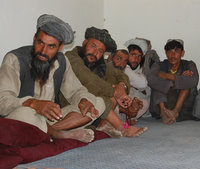
As Gen. David Petraeus takes over the U.S.-led mission in Afghanistan, he is right to continue a strategy of counterinsurgency and to strengthen it with a plan that seeks to give local Afghan communities the means to defend themselves. However, both the recently announced local defense plan, which pays community members to don a rifle and police uniform, and the over-arching counterinsurgency of which it is a part take the wrong path to reducing violence in Afghanistan. As Secretary of Defense Robert Gates said in 2008, the U.S. “cannot kill its way to victory.” Yet, the Pentagon has emphasized “providing […]
India’s chief of naval staff called for increased bilateral cooperation with Sri Lanka during a visit to the country late last month. In an e-mail interview, Eurasia Group’s Asia analyst, Maria Kuusisto, discusses evolving relations between India and Sri Lanka. WPR: What is the historical context of India-Sri Lanka relations? Maria Kuusisto: India-Sri Lanka relations have been marked by both tension and cooperation. The relationship has been historically driven by the shared Tamil ethnic community: India has a Tamil community of 60 million and Sri Lanka has a Tamil community of three million. When the Tamil ethnic insurgency in Sri […]
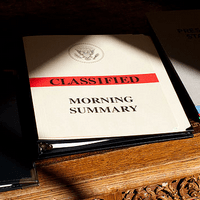
In terms of volume, the more than 90,000 documents posted on the WikiLeaks Web site has to be one of the largest publications on the Internet of classified U.S. government material. But in terms of content, the so-called Afghanistan War Logs don’t tell us anything that most people who have been following the war even casually don’t already know. For example, U.S. officials have long complained about support within Pakistan’s powerful spy agency, the Inter-Services Intelligence (ISI), for foreign terrorist groups — including the Taliban, which the ISI helped establish. The large number of Afghan civilian casualties resulting from coalition […]
There are a lot of reasons to be reassured by the Pakistani government’s decision to extend Gen. Ashfaq Kayani’s term as chief of staff by three years: continuity in leadership at a crucial strategic moment in Afghanistan and the Pakistan frontier, as well as a solid reputation for integrity and competence that facilitates what could otherwise be tough political sells in both ongoing wars. The similarity to the arguments supporting the appointment of Gen. David Petraeus to lead the U.S. and NATO war effort in Afghanistan should be obvious. It’s comforting to think that the two men are well-suited to […]
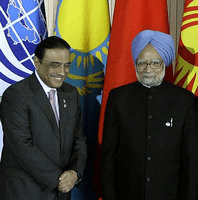
NEW DELHI — Indian External Affairs Minister S.M. Krishna’s three-day visit to Pakistan last week to move the bilateral Composite Dialogue forward will be joining a long list of Indo-Pak diplomatic debacles, the most recent one being at Sharm el-Sheikh last July. However, even by the abysmal standards of Indo-Pakistani diplomacy, the public spat between Krishna and his Pakistani counterpart, Mehmood Qureshi, at the joint press conference in Islamabad on July 15, marks a new low in bilateral engagement. It has also raised a fundamental question about India’s foreign policy toward its neighbor, one that is deeply dividing an already […]
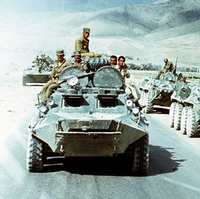
The 2014 Afghan security plan unveiled by President Hamid Karzai this week at the international conference in Kabul raises once again the question of whether the U.S. and NATO are moving towards a 21st century variant of the “Najibullah strategy” as they seek to determine their end game in Afghanistan. The reference is to the regime of Mohamed Najibullah, the Afghan leader at the time the Soviet Union withdrew its combat forces from Afghanistan in 1989. The Afghan government that the Soviets left behind controlled the major population centers as well as some of the rural regions of the country, […]
Afghan President Hamid Karzai plans to have Afghan forces take charge of security operations nationwide by 2014. Though delegates at an international donor conference in Kabul were apprehensive of too quick a changeover, most were optimistic that Afghan forces will soon be able to head security efforts in the country.
One of U.S. Army Gen. David Petraeus’ first moves after taking command of the nine-year-old NATO war effort in Afghanistan three weeks ago was to begin forming what the top U.S. military spokesman characterized as “community policing units” to help bolster local security in Taliban-plagued areas. The impetus behind the scheme was simple enough. “We clearly do not have enough police forces to provide security in enough of the populated areas,” top Pentagon spokesman Geoff Morrell admitted. Nevertheless, reaction to the plan was swift and alarmed. Afghan President Hamid Karzai reportedly objected to it — and for good reason. On […]
India and Canada signed a civil nuclear cooperation agreement on the sidelines of the G-20 Summit in Toronto late last month. In an e-mail interview, Ernie Regehr, a Centre for International Governance Innovation fellow, co-founder of Project Ploughshares, and adjunct associate professor of Peace and Conflict Studies at Conrad Grebel University College, explains broader India-Canada relations. WPR: How would you characterize India-Canada bilateral relations, historically? Ernie Regehr: India-Canada relations are remarkably modest considering the rather compelling circumstances that surround them. They share membership in the British Commonwealth. They are both politically resilient democracies. There are more than a million people […]
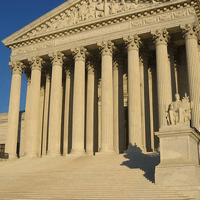
The Supreme Court’s recent ruling on Holder v. Humanitarian Law Project tightens the straightjacket that our current terrorist list system has placed on American diplomats and social scientists. In a 6-3 decision, the court ruled that the First Amendment does not protect groups or individuals who provide “expert advice or assistance” or “training” for pacific means to proscribed terrorist groups. For non-governmental peacebuilding groups that conduct workshops and promote dialogue as critical elements of their work, this decision is catastrophic. Now, even individuals who, through direct communication, urge proscribed terrorist groups to disarm and participate in negotiations are vulnerable to […]
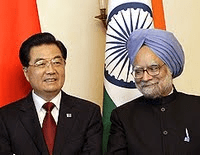
Indian National Security Adviser Shiv Shankar Menon had plenty on his diplomatic plate during his three-day visit to China earlier this month. Apart from exploring new avenues of cooperation, the trip also focused on broadening existing bilateral ties and charting out a roadmap for future engagements. With the trip coming after a year of renewed strains between the two countries, including reports of incursions by Chinese troops into disputed border areas as well as a spate of trade quarrels, Menon’s task was by no means an easy one. Moreover, the trajectory of Sino-Indian relations has historically been unpredictable since the […]
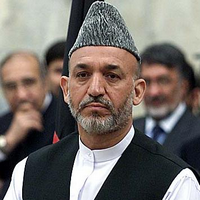
U.S. strategies in two key fronts of the ongoing struggle against terrorism and extremism — Afghanistan and Somalia — are predicated on one critical element: the eventual emergence of a central government that can establish its writ throughout the territory nominally under its jurisdiction. And in both cases, the central governments that exist on paper seem to offer little hope for success. Diplomats may recognize Sheik Sharif Sheik Ahmed, the head of the Transitional Federal Government (TFG), as president of Somalia, and Hamid Karzai has held the presidency in Afghanistan for many years now. But oftentimes it seems that both […]
The British 16 Air Assault Brigade prepares for a six month deployment to Helmand province. Preparations include not just familiarizing themselves with equipment, but also involve practicing joint patrols with Afghan troops and learning how to handle themselves in culturally defined communication, such as shuras, with tribal elders.
Pakistan recently decided to move forward with a gas pipeline project with Iran, despite warnings from the United States that involvement could subject Pakistani companies to new United States sanctions. In an e-mail interview, Harsh V. Pant, lecturer in the Department of Defense Studies at King’s College of London, explains the pipeline’s significance in the context of Pakistan-Iran relations. WPR: What are the driving interests for both parties in this pipeline project? Harsh V. Pant: Pakistan’s growing energy needs and Iran’s pool of energy resources make the two states natural economic partners, and served as the impetus behind the proposed […]
Pakistani President Asif Ali Zardari is on a week-long trip to China where he is strengthening military ties between the two countries. His trip follows that of Pakistani Chief of Staff Gen. Ashfaq Parvez Kayani, who was in Beijing a week ago with the mission of strengthening counterterrorism cooperation. In an e-mail interview, Harsh V. Pant, lecturer in the Department of Defense Studies at King’s College of London, explains the context for China-Pakistan military relations. WPR: Historically, what have been the driving priorities in China-Pakistan defense ties? Harsh V. Pant: Based on their convergent interests vis-à-vis India, China and Pakistan […]
